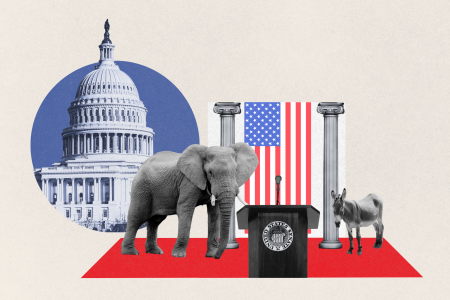The Senate approved a $95 billion foreign aid package for Ukraine, Israel, and Taiwan, reaffirming U.S. commitment to its allies abroad. The package includes $61 billion for Ukraine, $8 billion for Taiwan, $26 billion for Israel, and humanitarian aid. A provision in the bill requires the popular social media app TikTok to be sold or face a ban in the U.S. The bill saw increased support since the last vote in February, with 10 senators changing their votes to advance the measure.
Senate Majority Leader Chuck Schumer emphasized America’s commitment to defending democracy and standing with allies, while Senate Minority Leader Mitch McConnell highlighted the importance of supporting freedom-loving countries. McConnell attributed delays in passing the bill to isolationist sentiments within the Republican Party, with some members still opposing foreign aid. Despite more Republicans supporting the bill in the Senate, challenges remain in ensuring unity within the party.
Republicans in the Senate ultimately supported the foreign aid package, even without provisions for increased security on the U.S.-Mexico border that they had initially demanded. Sen. Lindsey Graham argued that supporting Ukraine would help prevent costly U.S. engagement in the future. Only three senators who caucus with Democrats opposed the bill due to concerns about U.S. support for Israel. Sen. Bernie Sanders was disappointed that an amendment to end unconditional support for Israel was rejected.
The TikTok provision in the bill would ban the app in the U.S. unless it is divested from its Chinese parent company. Lawmakers view TikTok as a national security threat, fearing Chinese government influence. Former President Donald Trump weighed in on the issue, shifting positions on TikTok, while Democrats debated their stance on the legislation. Sen. Mark Warner questioned Trump’s inconsistent position on TikTok amid ongoing concerns about the app’s potential risks.
Sen. Ben Cardin highlighted the challenges faced in passing the bill due to partisan infighting, emphasizing the importance of providing aid to those in need. The bill’s long journey underscored the impact of delays caused by political disagreements. Overall, the passage of the foreign aid package signals bipartisan support for U.S. allies and a commitment to upholding democratic values abroad. The challenge now lies in maintaining unity within the Republican Party and addressing ongoing concerns about foreign aid and national security.














